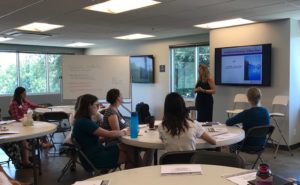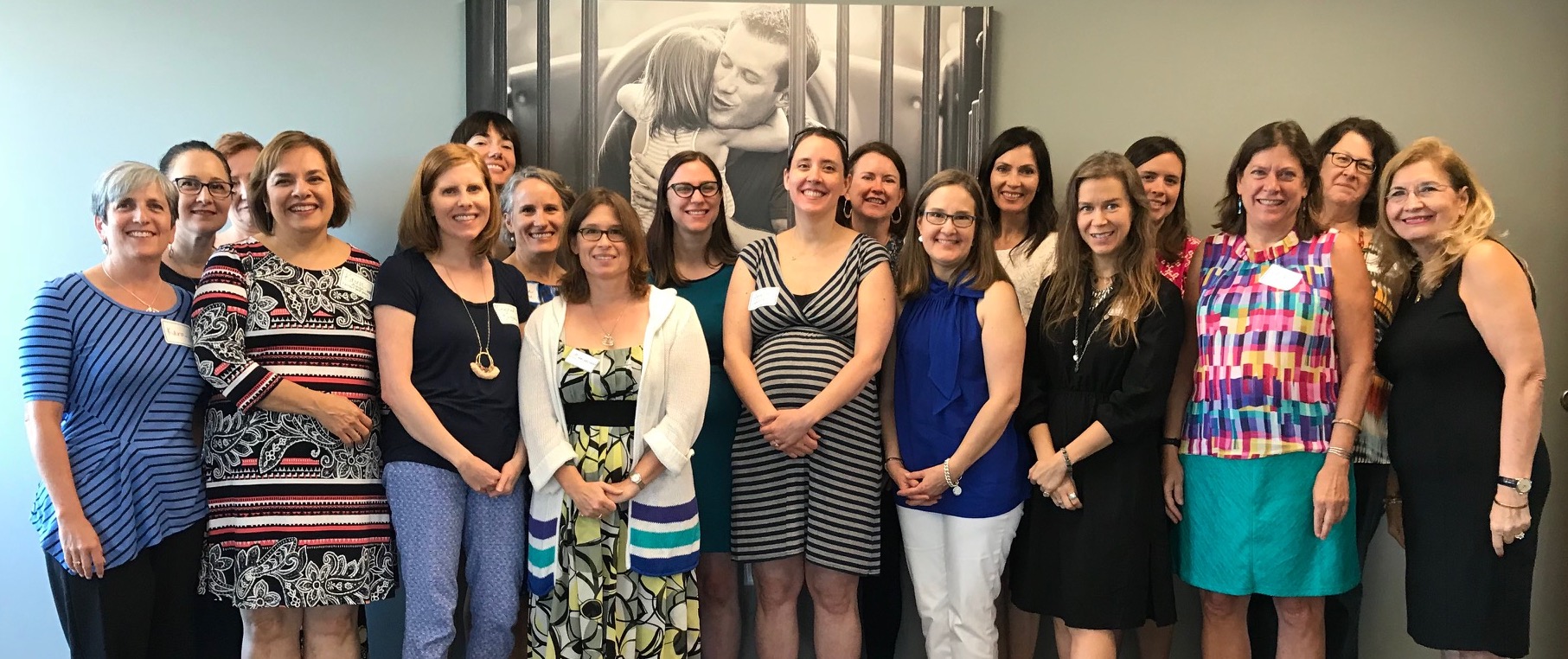When Darlene Templeton was young, going through a divorce, and unemployed, she figured  IBM was a big company that must need secretaries. So she waltzed into the IBM offices in jeans and t-shirt to ask for an application.
IBM was a big company that must need secretaries. So she waltzed into the IBM offices in jeans and t-shirt to ask for an application.
It was only after she was in the building that she realized she was sorely underdressed – everywhere she looked were people in suits and ties.
But she still asked for an application, filled it out, and got called back the next day for an interview. She had to borrow an ill-fitting suit from a friend and pin it up awkwardly to get through that first interview, but she got the job and it was the first step in a 36-year career with IBM that included many years as an executive at the company.
She managed to reach executive status in spite of usually being both the only woman and the only person without a degree in management in her organization. And it all started with having the confidence to walk through those doors and ask for an application – even while feeling completely terrified.
The Value of Confidence
Darlene Templeton, who now runs Templeton & Associates, spoke with Freelance Austin this month about bringing that kind of confidence to our own businesses.
She brought up a telling statistic: women only apply for jobs that they’re 100% qualified for, while men are comfortable applying when they only have 60% of the qualifications.
Yet Darlene became an executive of one of the biggest companies out there after starting as a secretary with no degree and no experience. She told us it’s not about the degree; it’s about how you present yourself.
Even if your suit is ill fitting or you find yourself completely underdressed, Darlene says, “confidence is the best outfit you can wear.”
The CPR Confidence Formula
Confidence is easy to talk about, but how can you actually go about increasing the amount you have? Darlene has a three-step formula for that. She not only shared her formula with us, but also gave us action items to take home with us.
Step 1: Courage
For this step, she looks to Eleanor Roosevelt for inspiration, a woman who was criticized relentlessly, yet took a number of important steps to improve the country while her husband was president. She reportedly said, “do something every day that scares you.”
Action Item: Decide on one action you’ll take outside of your comfort zone.
She challenged us all to think of one thing we’re hesitant to do because it’s intimidating, write it down, and commit to getting it done.
Step 2: Perfection
People who hold themselves to too high of a standard can hurt themselves (and their productivity) in the process. Darlene reminded us that perfection is often the enemy of great. It can slow us down and keep us from actively working toward our goals.
She advised, “treat yourself as you would your best girlfriends.” Few of us hold our closest friends to the same standard we do ourselves.
She recommended saying yes to things we’re interested in, even if we’re worried we’re not good/smart/skilled enough. But she also encouraged us to feel comfortable saying no to things to protect our time and energy, even if we’re afraid of seeming unhelpful.
“When you say yes to something, you’re saying no to something else. And that something is often you,” she pointed out.
Action Item: Decide on one action you will take to work on not always being perfect.
She asked us all to think of one way we would let ourselves off the hook and had us write it down during the meeting.
Step 3: Reframe
The language we use has power over how we see things. Darlene told us to be intentional about the language we use.
As a common example, she recommended that we stop saying “I’m sorry” so much. “Sorry makes you feel bad,” she explained. And people – women in particular – have a tendency to say the phrase at times when they’ve done nothing wrong.
She also encouraged us to avoid taking things too personally. Don’t overthink an ambiguous client email and spend your energy wondering if it means they’re mad. You can create a whole story in your head that stresses you out, but doesn’t match the actual facts of what they said.
Use your reframing powers for good, to let yourself off the hook more often and minimize unnecessary stress and guilt.
Darlene’s talk left attendees feeling energized and gave us all something to work on as we left the room.

If you’d like to make new connections and gain some useful insights with us next time, make sure to come to our August meeting about How to Tell Your Unique Story on August 8. You can register now.
- 5 Good Reasons to End a Client Relationship (And How to Do It) - January 11, 2019
- Finding an Effective Freelance Routine with Ashley Abedini - December 14, 2018
- Freelancing for Work Life Balance with Kristen Dunn - October 12, 2018
